Contours of a new world order Central Asia’s rise and its significance for Azerbaijan
This week’s visit of Kazakhstan’s President Kassym-Jomart Tokayev to Moscow is notable for the amount of attention the Russian side has devoted to strengthening ties with the largest Central Asian country. Just a day earlier, the leaders of all five countries in the region visited Washington, where they discussed with President Trump ways to strengthen relations with the United States. The European Union also continues its rapprochement with these states. Global players are re-evaluating their previous policies of imposing ideological doctrines on Central Asia and are seeking paths for cooperation. This not only changes the situation in the region but also opens new geopolitical prospects for Azerbaijan.
Kazakhstan’s leadership prefers diplomacy
On November 11, President Tokayev arrived in Russia for a two-day visit. The importance Moscow currently places on relations with Kazakhstan was evident in many details. Some were symbolic, such as the ceremonial escort of the Kazakh leader’s plane by Russian Su-35 fighter jets. Others were more substantial, including unprecedentedly large delegations on both sides and significant agreements—particularly regarding preparations for the transfer of nuclear cycle technologies. Following the start of construction, with Russian participation, of Kazakhstan’s first nuclear power plant, Astana achieved progress toward the “creation of a new sphere of competencies” in nuclear energy. On November 12, the presidents of Russia and Kazakhstan signed a Declaration to elevate bilateral relations to the level of comprehensive strategic partnership and alliance.
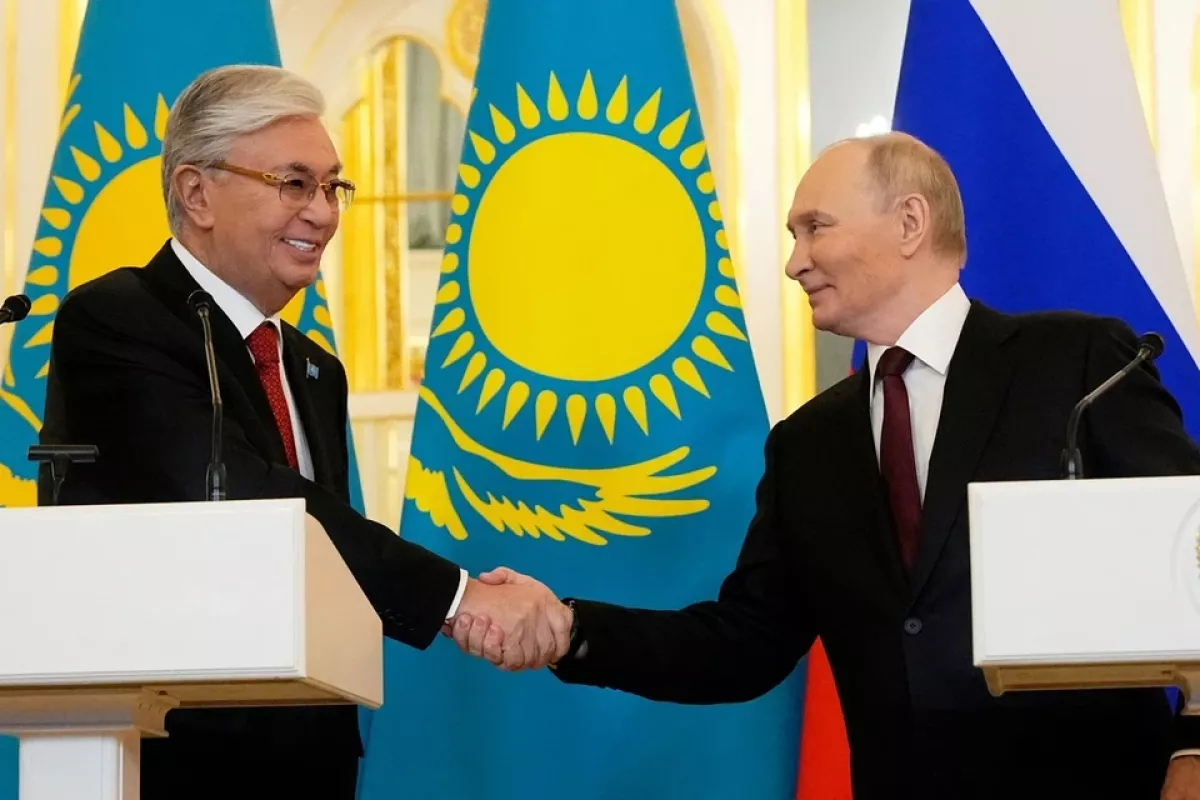
Tokayev spoke positively of the Russian leadership, while Putin described his talks with his counterpart as “substantive and productive.” The Kazakh leader arrived in Moscow immediately after visiting Washington, and some commentators in the West and East criticised him for how he spoke about his interlocutors. Some focused on his words about Trump, calling him “ the great leader, statesman, sent by Heaven to bring commonsense and traditions that we all share and value back.” Others highlighted his remarks about Putin as “a statesman of global stature.”
In reality, these statements simply demonstrate that Tokayev—renowned for his diplomatic skill—remains faithful to the principles of diplomacy, even when it seems that all global players, from Russia to the U.S. and the EU, are already rushing to strengthen ties with Kazakhstan and the other countries in the region.
Thus, in defending the interests of his country, he speaks in the carefully measured language of diplomacy. While many world politicians may have temporarily overlooked him, he enables the defence of national interests and the resolution of conflicts far more effectively than the recent hysterical and rude style promoted by political activists in global politics—a style previously mostly associated with certain leaders of the Third World.
However, Peskov also responded to a provocative question from a Russian journalist about Tokayev’s statements regarding Trump, saying: “Did we [the Russian leadership] say anything different in Anchorage [at the Russia–U.S. summit]? Just remember!” Such an acknowledgment of Astana’s sovereign right to its own political course—and the refusal to attack it—draws attention, as it shows that the major world powers and blocs are currently moving away from imposing their ideological doctrines.
Trump: “previous American presidents neglected this region”
In fact, the leaders of the Central Asian countries have recently succeeded in prompting some global players to reconsider their approach to relations with the region. This was demonstrated at last week’s “Central Asia–U.S.” summit.
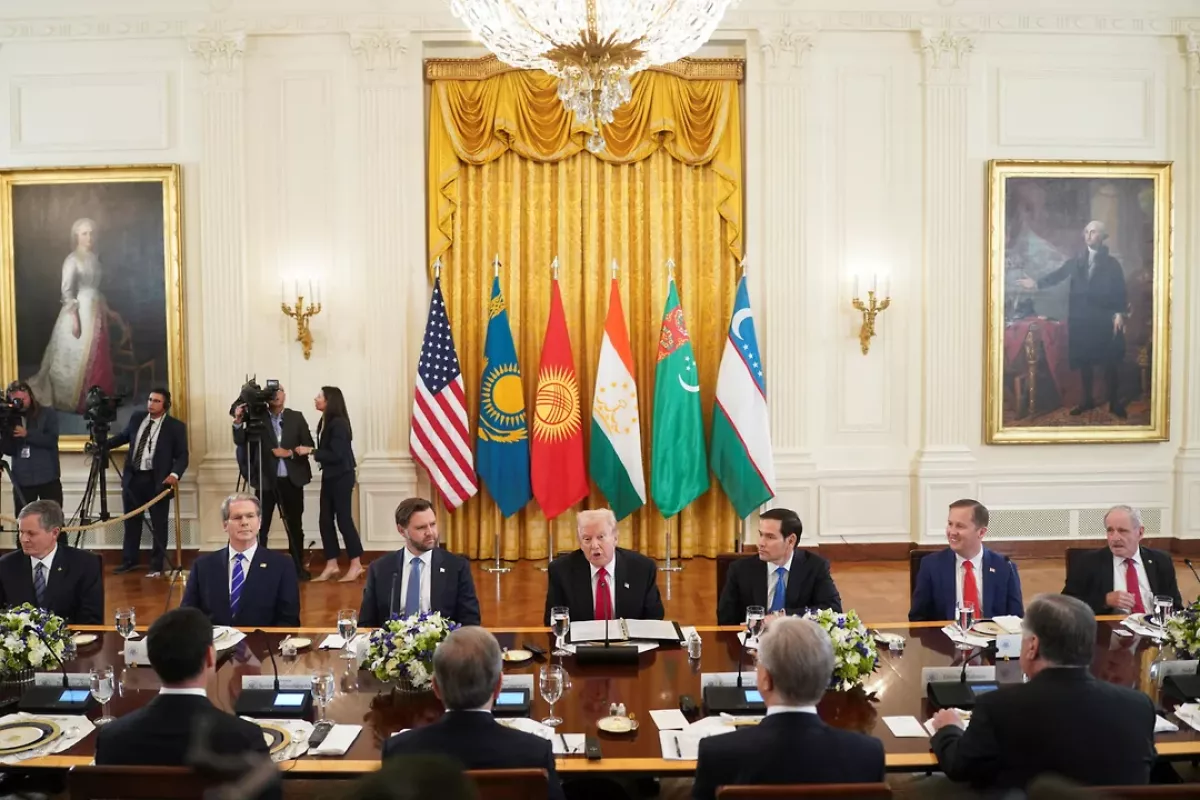
Then, on November 6, the leaders of Kazakhstan, Kyrgyzstan, Turkmenistan, Uzbekistan, and Tajikistan met in Washington with the President of the United States. Trump stated that the main topic of the talks was the extraction of key minerals, describing Central Asia as an “extremely rich” region in this regard. As a result of the meetings, Uzbekistan signed a trade and economic agreement under which it will invest nearly $35 billion over the next three years, and more than $100 billion over the following ten years in key sectors of the U.S. economy. Kazakhstan, in turn, agreed to grant an American company access to its tungsten deposits.
So, was this purely about business? Not entirely, as the discussions between U.S. leaders and the other Central Asian countries show. In those cases, no such deals were announced—rather, the talks focused on identifying areas for cooperation in principle and for the future.
For example, discussions with Kyrgyzstan centred on collaboration in financial technologies and artificial intelligence, while talks with Turkmenistan covered issues of security, the economy, energy, and environmental protection.
In other words, the issue was not so much the specific topics discussed as the fundamental question of the region’s countries’ place in global politics. The summit demonstrated their sovereign right to conduct an independent foreign policy—contrary to theories of Russian or Chinese spheres of influence in the region. Last year, the region’s trade turnover with China reached a record $94.8 billion, and with Russia over $45 billion. With the U.S., however, it amounted to only $4.2 billion, although this figure has nearly doubled over the past five years. Nevertheless, the Central Asian countries are actively developing relations with the main rivals of China and Russia—the United States.
This is facilitated by the fact that the collective West, particularly the U.S., has already reconsidered much of its policy toward Central Asia in recent years. For example, the “C5+1” format (the five Central Asian countries plus the U.S.) was created ten years ago, but for a long time it existed only at the level of foreign ministers. A significant turning point came in 2023 with the launch of summits at the highest level, involving the leaders of the Central Asian states and the U.S., although even these initially took place only on the sidelines of the UN General Assembly.
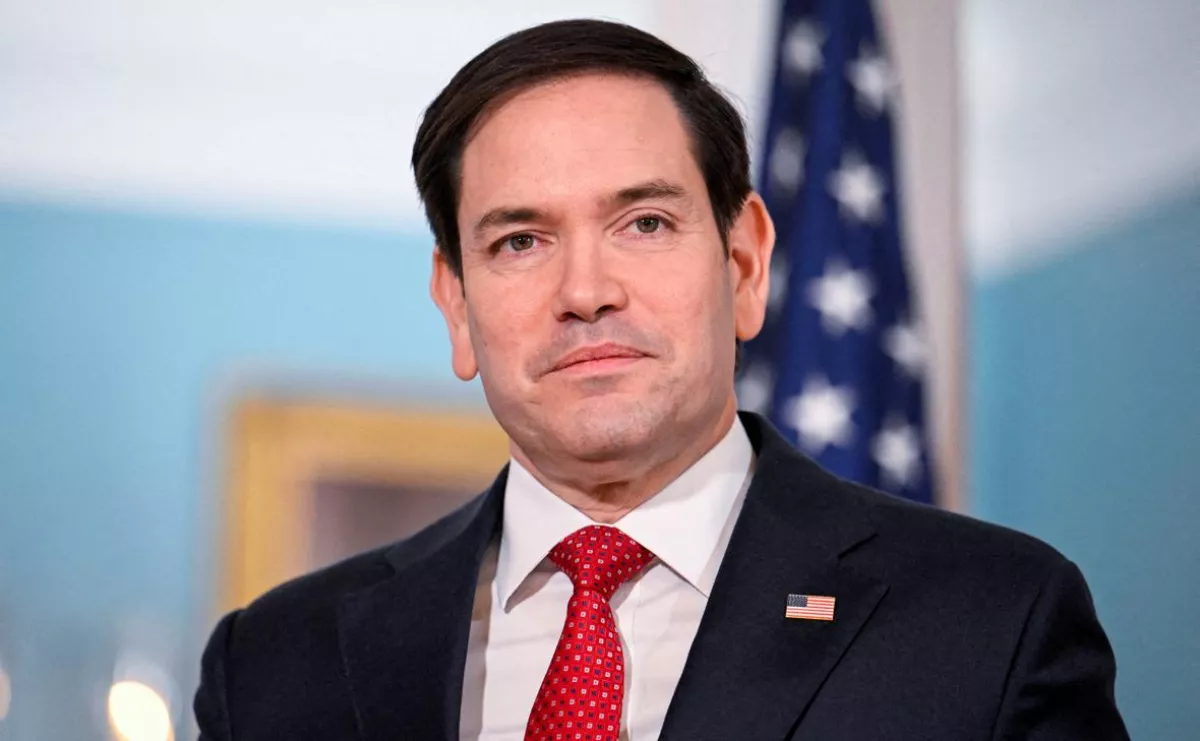
The current U.S. Secretary of State, Marco Rubio, recently remarked on relations with Central Asia, saying: “There’s been a little bit of neglect.” His boss also acknowledged that “previous American presidents neglected this region completely.” Both Rubio and Trump have stated their readiness to correct this situation.
Trump has already taken a decisive step toward rapprochement by inviting the presidents of the Central Asian countries to Washington. At the same time, the U.S. Congress has begun considering a bill to repeal the long-obsolete Jackson–Vanik amendment. Introduced in 1974 against the USSR for restricting the emigration of Soviet Jews, the amendment later, through expansive interpretation, came to be used to discriminate in U.S. trade against countries displeasing the global liberal establishment.
Simultaneously, the countries of the region are drawing closer to the EU. In April, Samarkand hosted the first-ever summit between the five Central Asian states and the European Union, at which the EU presented an investment package of €12 billion for Central Asia under the bloc’s “Global Gateway” programme. The sum is, of course, modest, but considering how the EU and its members treated the region’s countries just a few years ago, it is clear that this represents a major step forward.
But the most interesting development — against the backdrop of Central Asia’s rising geopolitical significance — is that Russia’s position has also begun to change. After the recent meeting of Central Asian leaders with Trump, Peskov stated that the rapprochement of the region’s countries with the U.S. and other states and blocs would not affect their relations with Russia:
"We have our own format: Russia–Central Asia, which was established quite recently. There is China–Central Asia, Japan–Central Asia, EU–Central Asia. So this is a widely used format, and it is entirely natural that our friends and partners in Central Asia discuss their relations in all directions in their foreign policy."
The geopolitical transformation’s implications for Azerbaijan
When people speak of the current transformation of the world order, it is often reduced to the rise of China and the decline of the collective West. Yet there are equally important processes of strengthening certain non-Western states. Some of these countries are becoming new intermediaries between rival blocs, others are effectively turning into neutral “Switzerlands,” while still others have gained the opportunity to partially free themselves from the intrusive influence of powerful world powers and develop in a more independent manner.
The countries of Central Asia combine all these trends, which strengthens both their international political positions and their economic standing.
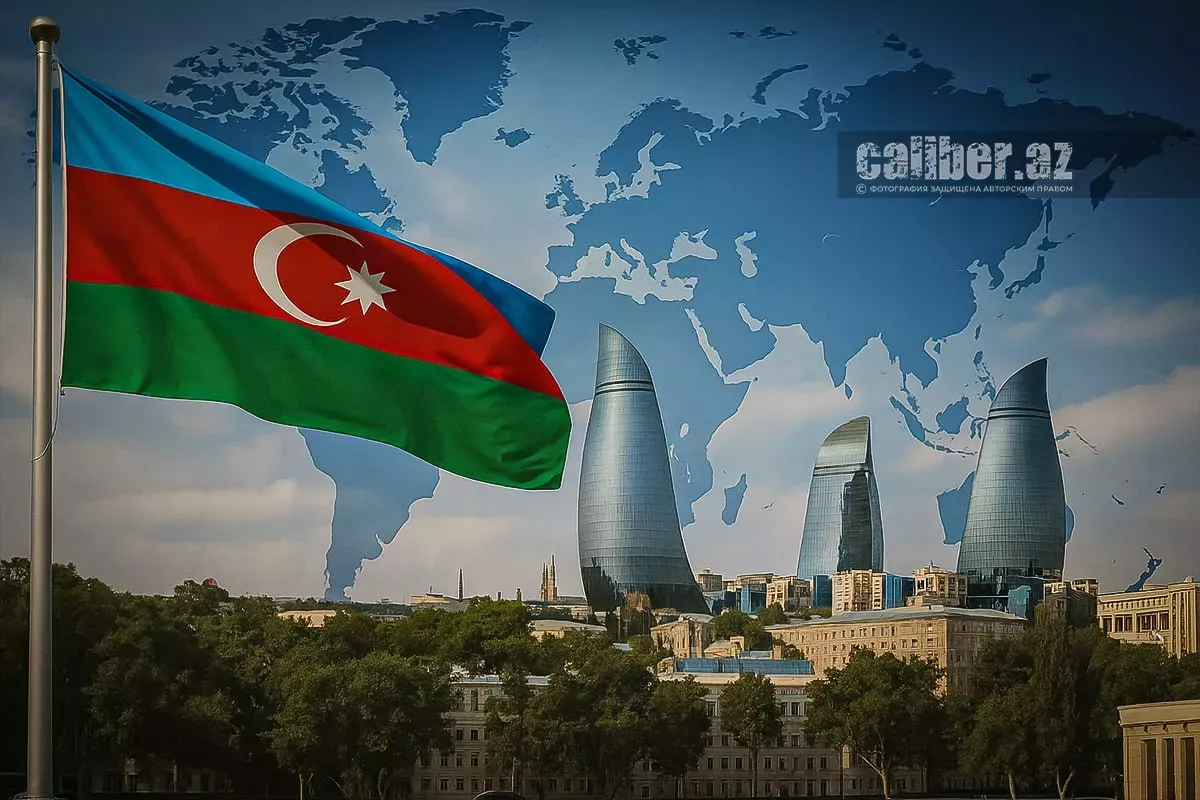
For Azerbaijan, the rise of Central Asia carries profound geopolitical significance. It is always easier to develop alongside other successful countries, and in this sense, the achievements of the Central Asian states are a major factor contributing to Azerbaijan’s own development. Take neighbouring Kazakhstan, for example: in August, the IMF announced that Kazakhstan had, for the first time, surpassed Russia among CIS countries in terms of GDP per capita — this year, Kazakhstan’s figure reached $14,770, while Russia’s stood at $14,260.
Today, the development dynamic in Central Asia is receiving new impulses for long-term growth. This means that to Azerbaijan’s east, opportunities for cooperation are expanding and obstacles are diminishing. The peace process with Armenia is thus woven into an additional context — the broadening of possibilities for developing relations and transit routes toward Central Asia.
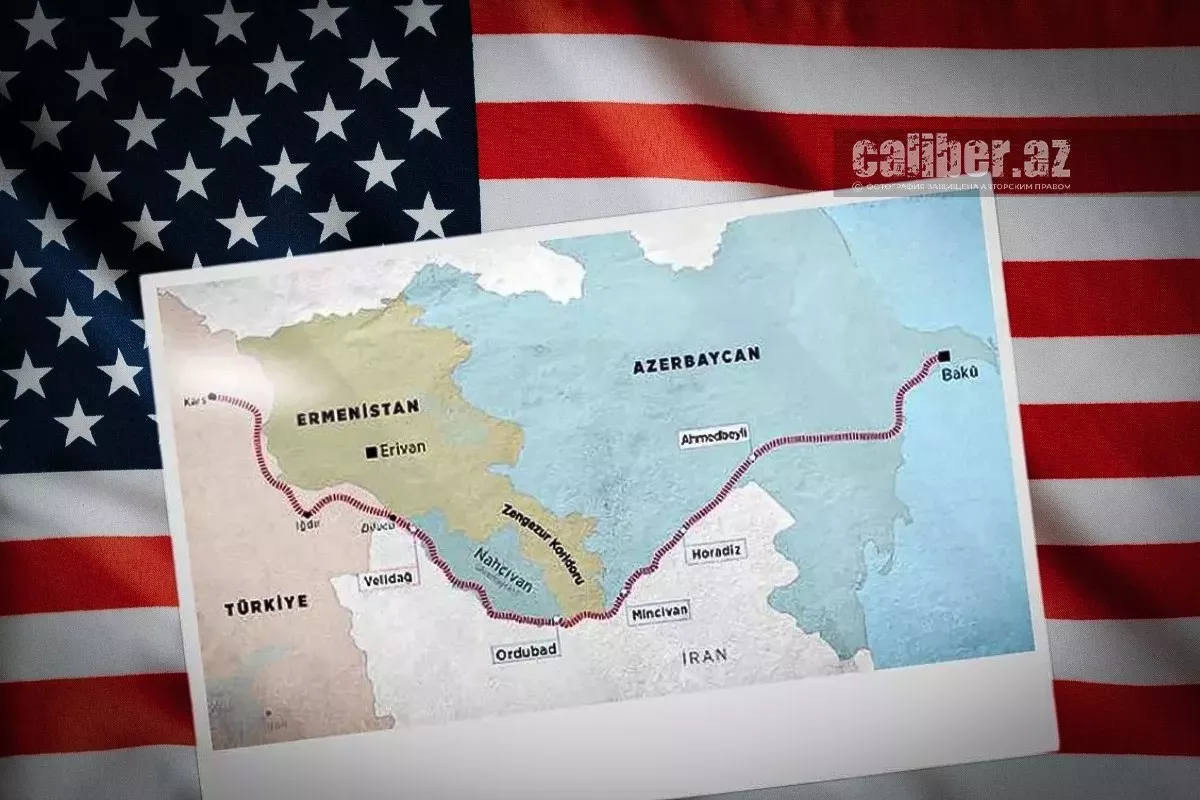
And here we return to the Zangezur Corridor, which objectively lies, among other things, on the route to Central Asia. At present, the situation is such that the United States may become Azerbaijan’s partner in implementing this project, which will reshape the geopolitical configuration of an entire region. The novelty of this policy is often underestimated. In reality, ever since the collapse of the USSR, we have seen how the collective West — while verbally proclaiming its support for the independence of the former Soviet and Eastern Bloc states — has behaved quite differently in practice.
For example, after 1991, the Central Asian states were never helped to reach the vast markets of South Asia and the southern seas by the shortest route, because Western intrigues surrounding Afghanistan and Pakistan (not to mention Iran) turned out to be more important to the collective West than the future of all the Central Asian countries combined. Eastern European states were lectured by Western advisers for decades about diversifying hydrocarbon supplies, yet in reality they were prevented from implementing even old Soviet-era plans to bring oil and gas from Iraq or Iran into the region — not to mention from the Caspian.
And finally, for decades we have witnessed how the collective West — especially European countries — allowed Armenian nationalists to maintain their occupation of Azerbaijani lands. By controlling these territories, they kept not only Azerbaijan’s internal communications divided, but disrupted connectivity across the entire South Caucasus region. More than that: the separatist project of Armenian nationalists physically obstructed Central Asia’s opening toward the West, granting Russia and China unprecedented opportunities to pursue their policies in the region.
Just imagine how objectively unequal the stakes were: to support a handful of nationalist and religious fanatics, or to help Central Asia overcome its geopolitical and geoeconomic isolation? For decades, Western countries chose the first option. Only now is the situation beginning to change.








